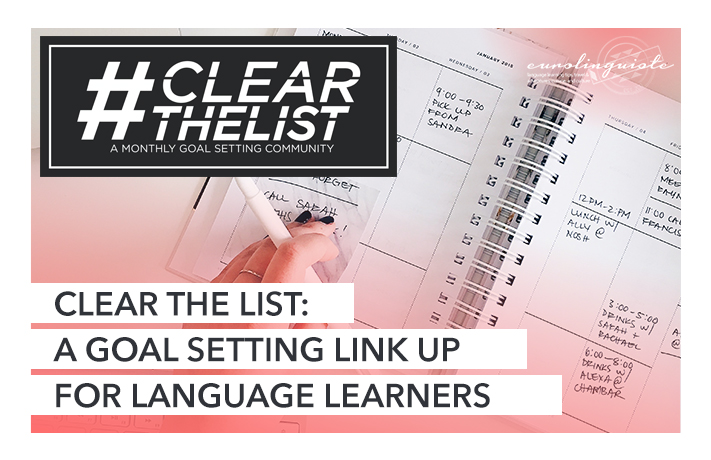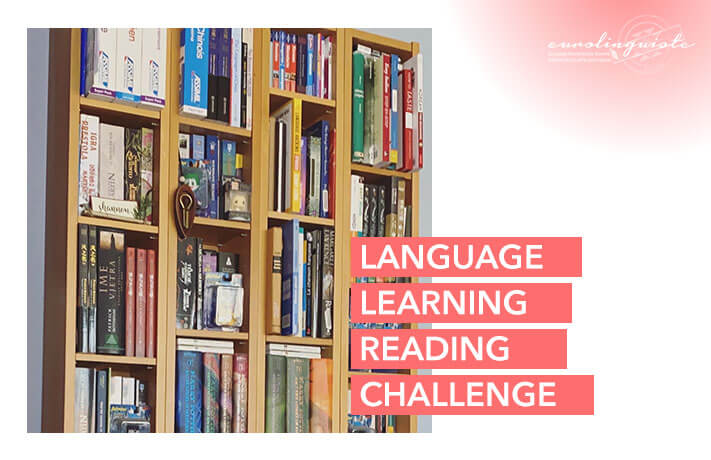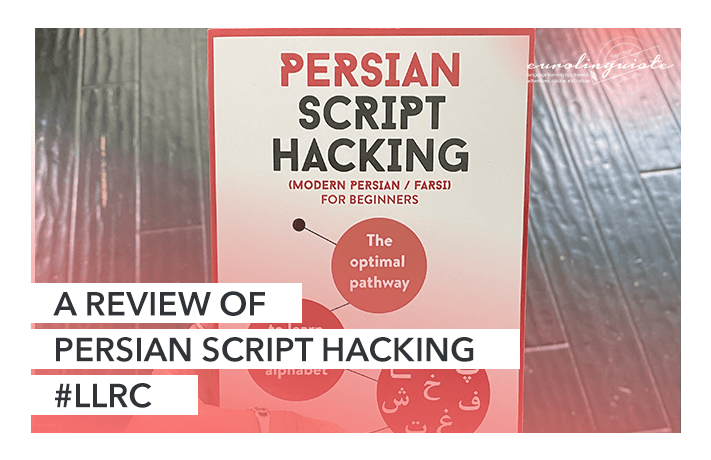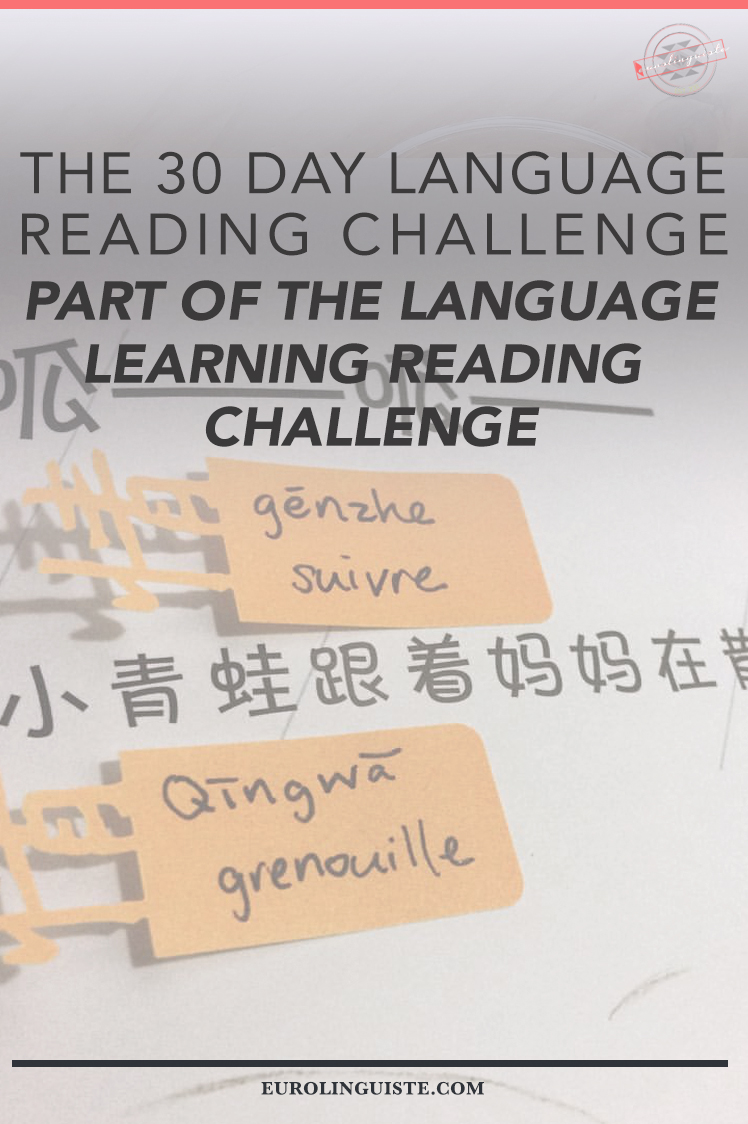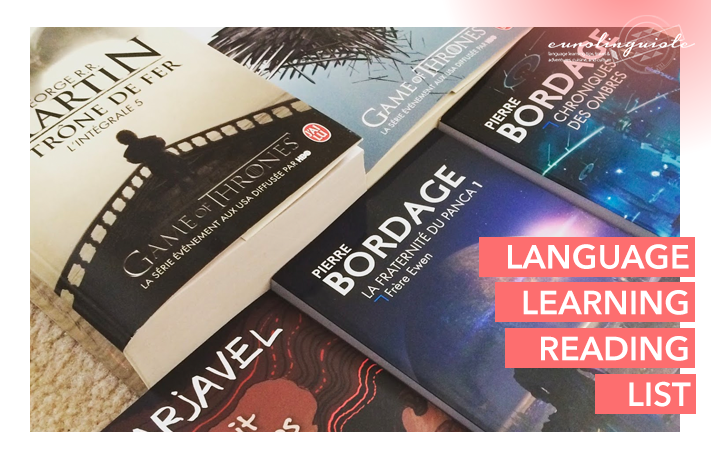Language Learning Reading Challenge (in Partnership with Women in Language)
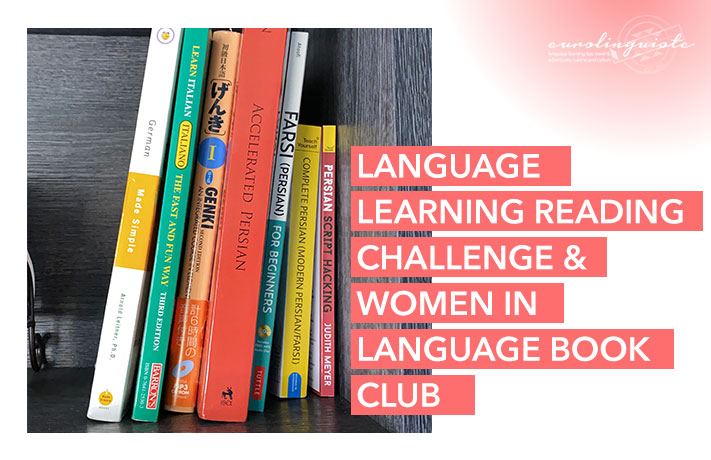
My name is Shannon Kennedy and I'm the language lover,…
The last several years, I’ve run the Language Learning Reading Challenge. Each month, we’ve read books that followed different themes or prompts, while chatting about them in the comments and Facebook group.
This year, during Women in Language 2020, there was a lively, inspiring discussion about reading, research, and an incredible list of book recommendations came out of the conversation. And as one of the co-founders and co-organizers of Women in Language, I realized the need to adapt the Language Learning Reading Challenge into something more.
It’s now both the WIL Book Club and the Language Learning Reading Challenge. This year, in addition to offering monthly prompts, I’ll share regular book recommendations, further reading, and so much more.
What does the new Language Learning Reading Challenge Look Like?
In partnership with Women in Language, the Language Learning Reading Challenge is going to have a few new features as well as carry over some of the legacy features.
Here’s what’s happening:
- Every month will have a theme and you can select any book you like that fits the theme to read as a part of the Language Learning Reading Challenge.
- We’ll have a collection of recommended reading material and discussions going as a part of the Women in Language Book Club.
- Regular read togethers hosted by community members where you can jump on a call and read with other language book lovers.
- You’ll get to hang out and chat with a cool community on either Facebook or Goodreads (or both!).
- And more to come!
October 2020 Book Theme for the Language Learning Reading Challenge
Read a book written by a female (or non-binary) author.
Since September is just ten days away from being done, we’ll start WIL Book Club off in October (besides, I know many of you are busy catching up on and enjoying the talks at Women in Language!).
For October, we’ll read a book by a female author. It can be in your native language, but you’ll get bonus points for reading a book in one of your target languages or for reading a book about your language written by a woman!
Current Book Recommendations for the Women in Language Book Club
Here is the current list of book recommendations to come out of Women in Language 2020. These will also be shared on Goodreads.
- “White Fragility” by Robin DiAngelo
- “Invisible Countries: Journeys to the Edge of Nationhood” by Joshua Keating
- “America Learns Russian: A History of the Teaching of the Russian Language in the United States” by Albert Parry
- “Imagined Communities: Reflections on the Origin and Spread of Nationalism” by Benedict Anderson
- “Invisible Women: Data Bias in a World Designed for Men” by Caroline Criado Perez
- “Beyond the Mother Tongue” by Yasemin Yildiz
- “Borrowed Tongues” by Eva C. Karpinski
- “This is London: Life and Death in the World City” by Ben Judah
- “Babel No More: The Search for the World’s Most Extraordinary Language Learners” by Michael Erard
- “On Va Le Dire Comme Ca” French Dictionary
- “Je n’ai plus osé ouvrir la bouche – témoignages de glottophobie vécue et moyens de se défendre” by Philippe Blanchet
- “The Namesake: A Novel” by Jhumpa Lahiri
- “In Other Words” by Jhumpa Lahiri
- “The Lowland” by Jhumpa Lahiri
- “Interpreter of Maladies” by Jhumpa Lahiri
- “Through the Language Glass: Why the a World Looks Different in Other Languages” by Guy Deutscher
- “Tattoos on the Heart: The Power of Boundless Compassion” by Gregory Boyle
- “Salsa Nocturna” by Daniel José Older
- “En defensa de la lengua andaluza” by Tomas Gutier
- “The Phonology of Hungarian (The Phonology of the World’s Languages)” by Péter Siptár
- “Catalogue des idées reçues sur la langue” by Marina Yaguella
- “Talking Back, Talking Black: Truths About America’s Lingua Franca” by James McWhorter
- “From Sabotage to Support: A New Vision for Feminist Solidarity in the Workplace” by Joy L Williams
- “Playing Big” – Tarah Morh
- “Polyglot: How I Learn Languages” by Kato Lomb
- “Racialized Identities in Second Language Learning: Speaking Blackness in Brazil (Routledge Advances in Second Language Studies)” by Uju Anya
- “Language, Identity, and Choice: Raising Bilingual Children in a Global Society” by Dr. Kami J. Anderson
- “Raising Bilingual Brown Babies: Everyday strategies to become a confident bilingual family” by Dr. Kami J. Anderson
- “The Afrocentric Idea” by Molefi Kete Asante
- “Quiet: The Power of Introverts in a World That Can’t Stop Talking” by Susan Cain
- “What Do I Do When I Want to Do Everything?: A Revolutionary Programme for Doing Everything That You Love” by Barbara Sher
- “Discriminations Combattre La Glottophobie” by Philippe Blanchet
Other Things You Should Know About the Language Learning Reading Challenge and Women in Language Book Club
Each month, we’ll tackle one book covering a topic related to language and share our experiences as a group. Please feel free to join us. You can participate by commenting on the posts here at Eurolinguiste or by joining the group on Facebook.
As part of the challenge, we will be read books that cover everything from culture, language learning, general learning techniques, history, and more. Plus, we’ll be reading both in our native languages and target languages.
If you’re at a more advanced level in your target language, feel free to read any or all of the books (not just the ones indicated as target language only) in the language that you’re learning. If you’re still just getting started, that’s okay, too! You can read along in your native language, discovering more about the cultures and histories tied to the language(s) that you’re learning, opting for lower level or graded readers for books in your target language.
Please note that you don’t have to pick just one language for this challenge. If you’re learning multiple languages, feel free to mix and match. The challenge is pretty flexible. I’ve planned it this way so you can get the most learning possible out of it.
A Few Notes Regarding the Challenge:
The challenge doesn’t have to focus on one language, if you are studying multiple languages (or have an interest in languages you’re not studying), feel free to go for books in or about those languages.
You are absolutely welcome to read books of any level. Graded readers, children’s books, academic books or any other genre are acceptable for the challenges that require you to read in your target language(s).
You do not need to participate every month to be a part of this challenge. You can choose the months that align with your interests.
If you do not complete the book you take up in any one month of the challenge, that’s okay! You can still join in the conversation and share some of what you’ve learnt from the sections of the book you were able to get through.
And that’s it! Looking forward to hearing all about what you’re reading.
My name is Shannon Kennedy and I'm the language lover, traveler, and foodie behind Eurolinguiste. I'm also the Head Coach of the Fluent in 3 Months Bootcamp, co-founder of Women in Language, and former Resident Polyglot at Drops.


